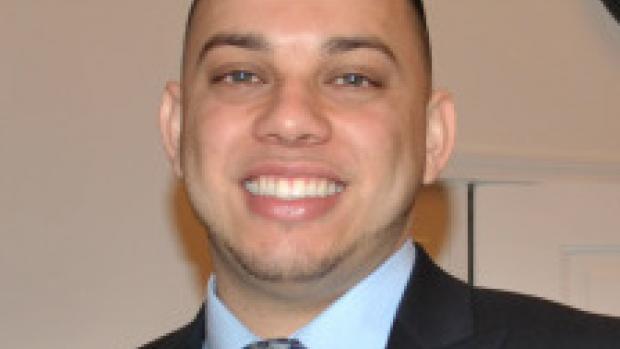It Takes a Village (or at Least a Great School)
Alum Reynaldo Salcedo Credits Much of His Success to the Community He Found at Tandon

Three-time graduate of the electrical engineering department, Reynaldo Salcedo (’11, ’12, ’14) is now working at MIT’s Lincoln Laboratory, a research facility devoted to finding solutions to problems critical to national security. While the majority of laypeople would undoubtedly find the technical aspects of his job incomprehensible, he explains that his research relates to power systems and that he is trying to make it faster, more cost-efficient, and more secure to deploy micro-grids — small-scale power grids that can operate independently when needed, thus making the nation’s energy infrastructure more reliable and resilient.
Salcedo knows a thing or two about comprehending the incomprehensible. In 2004, when he arrived in the United States from the Dominican Republic, he spoke no English whatsoever. Settling in Harlem with his family, he applied himself to learning the language and by the time of his high school graduation, just two years later, he had become proficient enough to earn admission to multiple colleges.
With his sights set on electrical engineering, it was not too difficult to winnow his choices down to one: the school then affectionately known as Brooklyn Poly, which every working engineer he approached vouched for enthusiastically and which would allow him to remain in New York City, near family.
While his English had progressed enormously over the previous two years, Salcedo still faced some language barriers. “Luckily, I spoke fluent numbers,” he now jokes. “So math and physics at least were easy for me, and my peers were an enormous help with other subjects.”
“It’s as though everyone I encountered at school was as invested in seeing me succeed as I was myself.”
Salcedo soon discovered that he had a strong safety net in the form of his professors. “I can’t even begin to tell you how supportive and encouraging everyone was,” he says. “I’d have to start with my master’s and Ph.D. advisor, Francisco de Leon, and my co-advisor, Dariusz Czarkowski, who was also instrumental in getting me interested in power systems.” He continues, “The list wouldn’t be complete without Professors Zivan Zabar and Peter Voltz, whom I really look up to, and then there’s Professor Haldun Hadimioglu, from Computer Science and Engineering — not a day goes by when I don’t think of him because I use at least 80 percent of what he taught me every single day. He’s responsible for me being a methodical and logical thinker.”
His safety net extended even farther than those scholarly mentors, however. “Anytime I had paperwork that was daunting to fill out or simply needed a little emotional support to keep me going, Valerie Davis and Ellen Daniels, who worked in the department office, were there for me,” he explains. “It’s as though everyone I encountered at school was as invested in seeing me succeed as I was myself.”
The list continued. Energy company Con Edison funded enriching research projects in which he worked with distributed systems and other topics that interested him. His peers provided additional support and welcome social outlets. (Salcedo particularly relished the chance to seek out the area’s best brisket — still his favorite food — and to practice the Afro-Brazilian martial art known as capoeira — still a favored activity.)
Now, with a string of scholarship awards, presentations, and published papers to his credit and a job in a renowned research facility, you might think that Salcedo has put his Brooklyn days far behind him, — but you would be wrong. “Although it has a different name now, Tandon is still the same place that nurtured me and allowed me to become the engineer I am today,” he says. “It’s great to know that new generations of aspiring engineers are getting the benefit of the same education.”




